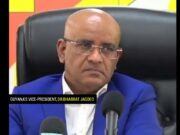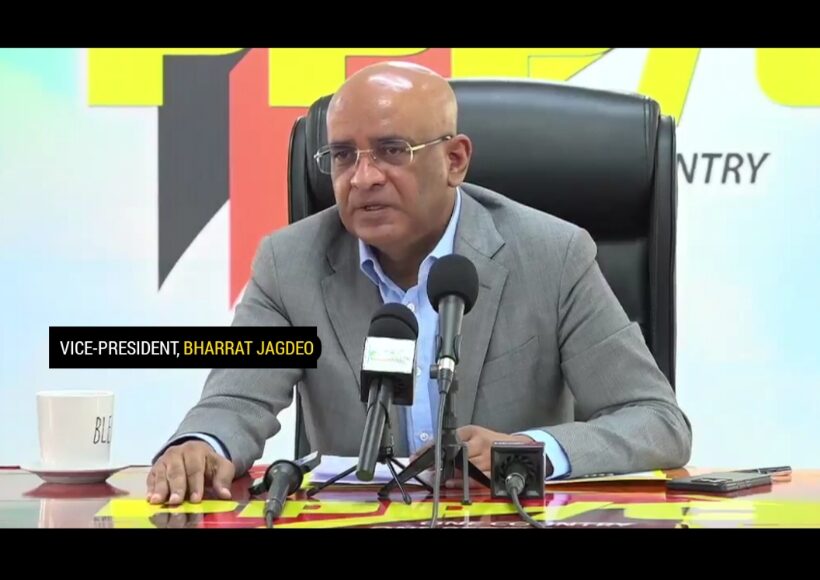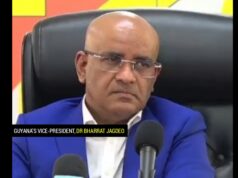During his press conference on Thursday, Vice President (VP) Dr Bharrat Jagdeo addressed calls for the lastest cash distribution initiative to be done annually. He clarified that while cash transfers will continue, they will occur periodically, while balancing investment in infrastructure development.
“This will happen periodically in the future, it’s not going to be a recurrent thing every year like they are saying, it’s dependent on affordability,” Jagdeo said. He further explained that this cautious approach is intended to avoid the economic pitfalls experienced by countries that focused solely on distributing money, leading to economic collapse.
The official assured that the Government of Guyana (GoG) is committed to both supporting citizens and maintaining investment in infrastructure. Jagdeo also underscored that cash transfers to citizens and infrastructural development do not have to be done at the expense of each other.
He said, “It’s a sustainable thing for us, we can do this periodically, give our people some money, we can give them and still do the infrastructure; better housing, better roads, better hospitals for our people, balancing the interest…our people can benefit and also you can do that.”
Jagdeo underscored that the government’s strategy is centered on achieving balance in a sustainable manner.
He highlighted the importance of having proper systems in place to ensure a smooth and transparent distribution process of the $100,000 to persons 18-years and older. He disclosed that government is looking to complete the distribution within five months’ time.
“We will start as soon as possible but the systems have to be in place to avoid corruption,” he said. The official emphasized that the distribution of the $100,000 grant is a more equitable approach compared to the earlier proposed $200,000 household grant, which had raised concerns. He stated, “Now with this $100,000 per person it makes it easier because we already have the data bases.”
Further, Jagdeo indicated that for individuals not currently in the government’s database, systems will be set up in villages where they can verify their eligibility using a national ID card or passport before receiving a cheque.
“We are hoping to do most of the transfer through cheques not cash,” he stated. For the hinterland regions, where many citizens lack access to banks, a different mechanism will be implemented to facilitate the process.













